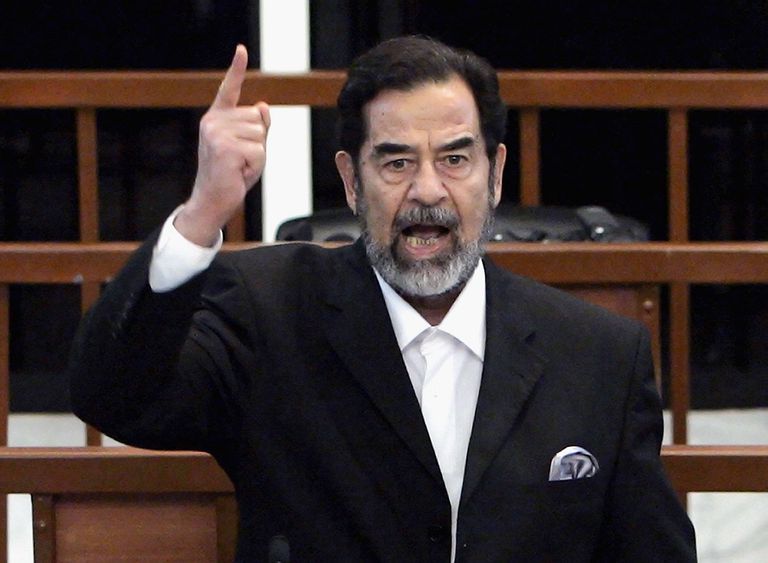A promising proxy for the United States was just across the border in Iraq: the new strongman of Iraq, Saddam Hussein.
很希望的新代理人就在伊朗旁边的伊拉克:伊拉克的新铁腕人物,萨达姆·侯赛因。
Himself raised the Sunni Muslim, Saddam kept Iraq's Shiite majority in line,
他壮大了逊尼派,使伊拉克多数的什叶派有所限制,
despite the Shiite majority's natural sympathy for the Shiite regime in Iran.
虽然他们对伊朗的什叶派有着自然的同情。
On September's 22nd 1980, Saddam Hussein invaded Iran.
1980年9月22日,萨达姆·侯赛因进攻伊朗。
Whether or not President Carter had promised Saddam a free hand, he was happy to see the hated Iranians take one across the chops.
不管卡特总统有没有让萨达姆放手去做,他都很高兴看到讨厌的伊朗人碰到麻烦。
Succeeding Carter in 1981, President Ronald Reagan made a priority of projecting American strength.
1981年罗纳德·里根总统上任,重点优先展现美国实力。

Congress forbade him from dealing directly with Iraq, so he found ways of getting Saddam his weapons anyway.
国会禁止他直接参与与伊拉克作战,但他还是通过别的方式使萨达姆得到了武器。
The war waged back and forth for nearly eight bloody years.
这场战争往往复复进行了差不多八年。
Isolated from both the United States and the godless Communists, Iran ultimately sued for peace in August 1988.
伊朗在被美国和无神论共产主义者孤立后,终于在1988年8月请求和谈。
At first glance, it was a win-win situation for the United States.
乍一看,这对于美国来说是次双赢。
Two Middle Eastern heavyweights had pounded each other silly, at no cost to the Americans.
两位中东的重量级选手愚蠢地互相打斗,而美国不需要付出丝毫代价。
But that which looks too good to be true usually is.
但那些看上去好得不太真实的事情,往往是真的。



